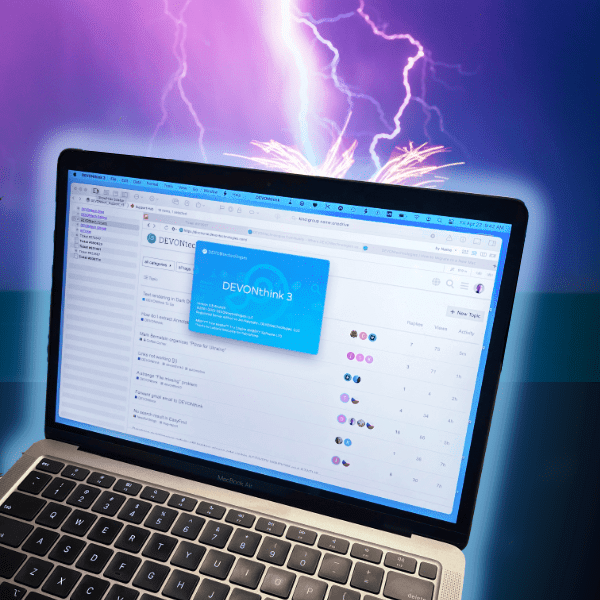How to Protect Your Data with a UPS

An interesting weather fact: The Earth is struck by lightning eight million times per day, and no that’s not a typo. The power of a single strike can shut down electricity for a house, a neighborhood, or more. But there are also other potential causes of power outages, outages that can lead to data loss. Here’s one way to try and minimize potential losses.
As mentioned, these surges may be from lightning strikes but other events, e.g., construction mishaps, electrical blackouts, wiring faults, or even accidents like tripping over a plug can unceremoniously shut down your desktop devices. If your DEVONthink databases are open when the machine shuts down, there’s a possibility data could be lost.
A UPS (no, not the big brown trucks), is an uninterruptible power supply. It is essentially a big battery with circuits that insulate electronics from surges of electricity. In normal use, it ensures the devices are getting clean, consistent power, and protects the devices from electrical surges. In emergency use, when the power goes out, it acts as a temporary power brick providing enough power to allow you to save your files, close your applications, and shut down your devices safely. In contrast, a surge-protected power strip can avoid damage to your electronics, and is usually cheaper, however it can’t avoid a device shutdown.
Providing multiple outlets, a UPS can protect several devices. But the more outlets, the more battery capacity is needed, and the weight that goes along with it. However, they are commonly placed in a static location, so the weight shouldn’t be an everyday issue. And with changes in battery technology, the units are lighter than those of the past.
If you shop around, many UPS manufacturers also provide guarantees against data loss and offer financial compensation should the loss be directly attributable to a failure of their device.
Lastly, remember a UPS is a separate line of defense in protecting your data. You should also be routinely running proper primary backups as well.
